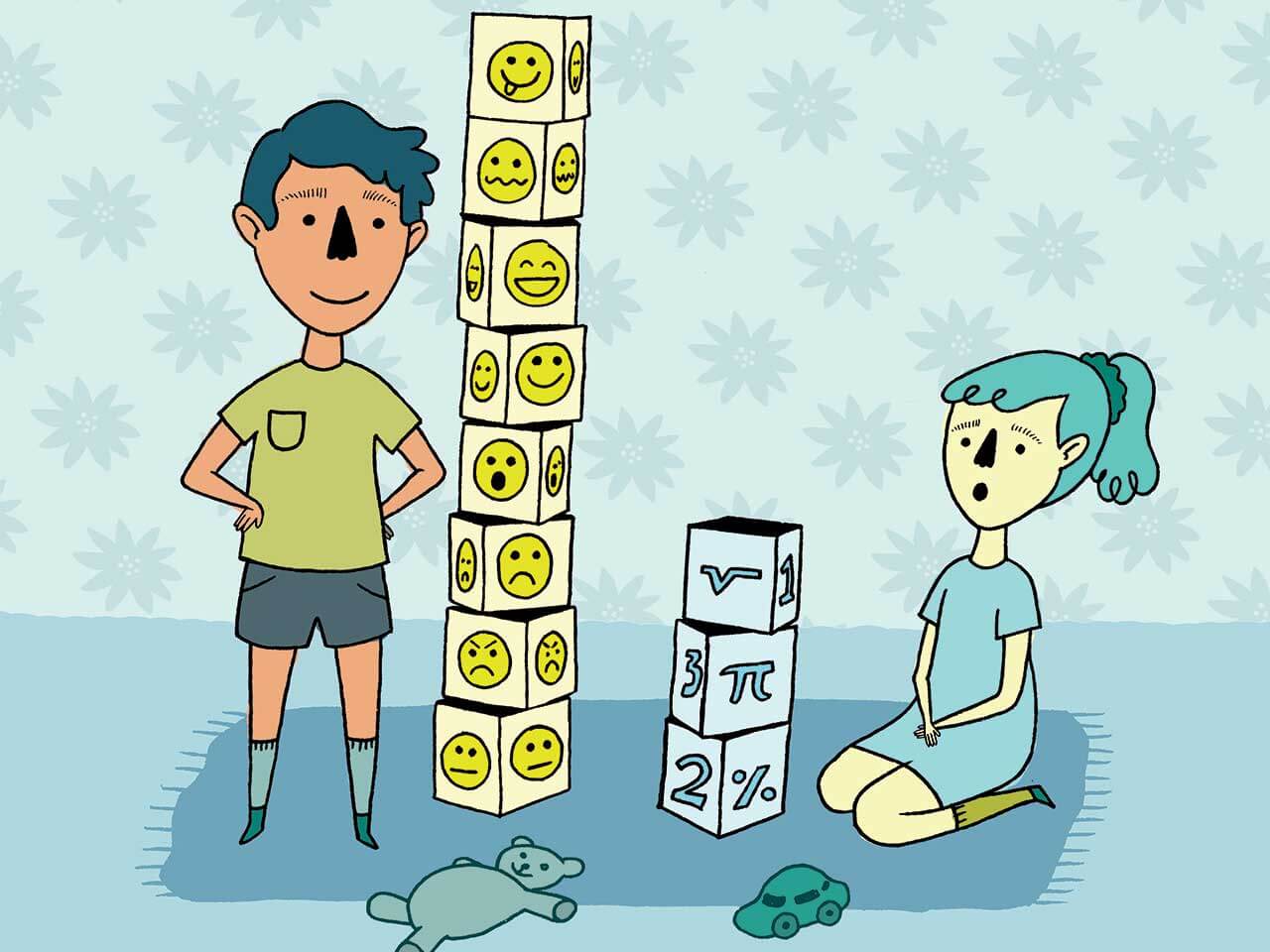Tags: Mental health. Child. Childrens. Emotions.
“The way we talk to our children becomes their inner voice”
– Unknown Over the past several decades, studies have found emotional intelligence (EI) provides a variety of benefits that will serve your children well throughout their entire lives. Emotional Intelligence (IE) is the ability to be smart about feelings—our own and other people’s. It is about being able to notice, understand and act on emotions in an effective way. Five factors of EI are:
Self-Awareness: A person knows what they are feeling at any particular time. We should understand how our mood affects others.
Self-Regulation: We can control how we respond to our emotions. We consider the possible consequences before acting on impulse. Motivation: We can accomplish goals despite any negative or distracting feelings we may be having.
Empathy: We can understand how others feel.
Social Skills: We can manage relationships. We know what kind of behaviours get a positive response from others.
How it helps
High EQ is linked to high IQ. Children with higher levels of emotional intelligence perform better on standardized tests. They also tend to have higher grades.
Better relationships. Emotional intelligence skills help kids manage conflict and develop deeper friendships. Adults with high levels of emotional intelligence also report better relationships in their personal and professional lives.
Childhood EQ is linked to higher success during adulthood. A 19-year study published in the American Journal of Public Health found that a child’s social and emotional skills in kindergarten may predict lifelong success. Children who were able to share, cooperate and follow directions at age 5 were more likely to obtain college degrees and to begin working full-time jobs by age 25.
Improved mental health. Individuals with higher levels of emotional intelligence are less likely to experience depression and other mental illnesses.
The benefits of emotional intelligence make sense. A child who can calm them self when they feel angry is likely to do well in difficult circumstances. And a child who can express their emotions in a healthy way is likely to maintain healthier relationships than a child who screams or says mean things when they are angry. The good news is, all kids have the capacity to learn emotional intelligence skills. They just need adults to teach them how.
Acknowledge your child’s perspective and empathize.
• Even if you can’t “do anything” about your child’s upsets, empathize.
• Just being understood helps humans let go of troubling emotions.
• If your child’s upset seems out of proportion to the situation, remember that we all store up emotions and then let ourselves experience them once we find a haven. Then we’re free to move on.
• You want to use “empathetic listening.” Get them to talk.
• Help them clarify.
• Validate their feelings (but, again, not necessarily their behaviour).
• They need to feel you really understand and that you are on their side. Empathizing doesn’t mean you agree, just that you see it from their side, too. They may have to do what you say, but they are entitled to their own perspective. We all know how good it feels to have our position acknowledged; somehow it just makes it easier when we don’t get our way.
Don’t immediately try to fix things.
• You need to establish you’re a safe ally before you can solve anything.
• Understanding must precede advice, and, just as with adults, they decide when you understand.
• If you skip immediately to problem-solving, the kid never learns the skill of how to deal with those uncomfortable emotions.
Take a deep breath, relax and focus on them. They’ll notice if you’re impatient or frustrated and just going through the motions.
Allow expression of emotions
Young children cannot differentiate between their emotions and their “selves.” Accept your child’s emotions, rather than denying or minimizing them, because by denying them we are sending children the message that some feelings are shameful or unacceptable. Disapproving of a child’s fear or anger won’t stop them from having those feelings, but it may well force the child to repress them.
Unfortunately, repressed feelings don’t fade away, as feelings do that have been freely expressed. They’re trapped and looking for a way out. Because they aren’t under conscious control, they pop out unmodulated. What we see is children having nightmares, bed wetting, and an increase/start in poor behaviour. Instead, teach that the full range of feelings is understandable and part of being human, even while some actions must be limited.
Listen to your child’s feelings.
Remember, rage doesn’t begin to dissipate until it feels heard. Whether your child is 6 months or sixteen, they need us to listen to the feelings they are expressing. Once they feel and expresses them, they tend to let them go and get on with life.
It’s about feeling safe to let the feelings up and out, a child needs to know you’re fully present and listening. Assured that its safe, children have an amazing ability to let their feelings wash over and out, leaving them relaxed and cooperative. Your job? Breathe through it, stay present, and resist the urge to make those troublesome feelings go away.
Next ISSUE: Part 2 covers Teaching skills and learning about important facts to help your child.
Read part 2 – Developing emotional intelligence in children

